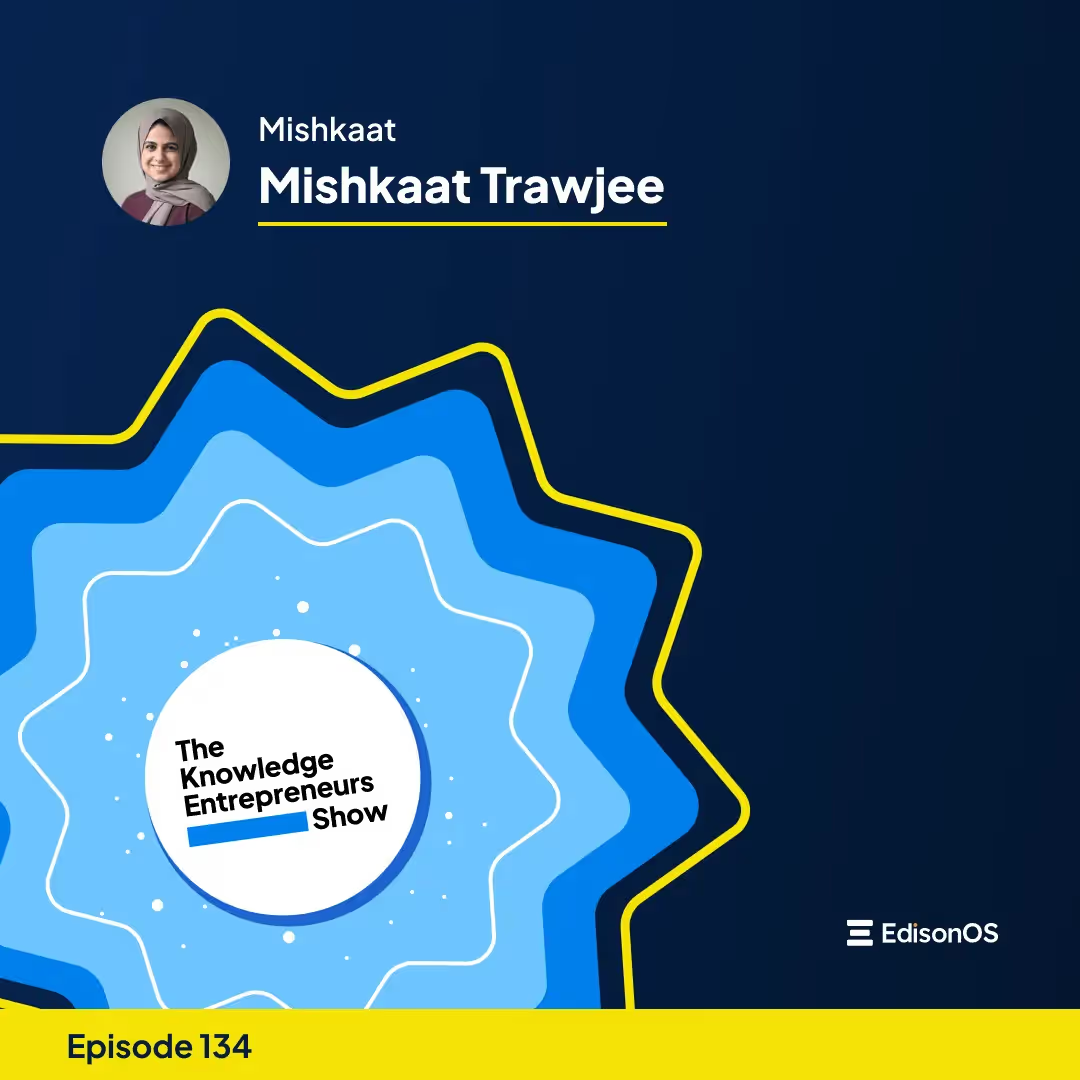




Key Takeaways
- Transform Your Expertise into Profit: Discover the 5 crucial steps to convert your work expertise into a high-impact online course that attracts and engages learners.
- Conquer the Fear of Perfectionism: Learn how embracing imperfection can lead to the creation of a successful course that truly resonates with your audience.
- Target Your Ideal Audience: Uncover strategies to identify your perfect audience, structure your course content effectively, and select the best platform for delivery.
Turning your work expertise into an online course is a powerful way to share your knowledge and create value for others. This process can seem daunting, but with the right steps and effective use of course materials, you can transform your skills into a structured, engaging course. Choosing the right online course platform is crucial for effectively delivering your content and engaging your learners. While free courses can provide decent introductory content, they often come with limitations such as restricted access to materials, unlike paid courses which offer extended access and additional benefits.
In this blog, we’ll walk you through five essential steps to help you create and launch a successful online course. From letting go of perfectionism to defining your audience and structuring your content, these steps will provide you with a clear path to turn your expertise into a course that resonates with your learners.
Let’s get started on building a course that showcases your skills and makes a meaningful impact.
1. Leave Perfectionism Behind
It’s common to feel the pressure to be an expert in your field before creating a course, but perfectionism can be a roadblock. Instead, focus on aligning your skill set, passion, and experience with your course content. Identify the key problems your course will solve and start the process, knowing that clarity will come as you progress.
Embrace the journey by drawing on your professional and personal learning experiences. Organize your notes and materials, and build your confidence as you move toward launching your course. Understanding and mapping your learning journey is crucial to ensure all important learning objectives are addressed before fully developing the course content.
2. Identify Your Expertise and Define Your Audience
Your expertise is the cornerstone of your course, and your audience is the group that will benefit most from your knowledge. Pinpoint your strengths by asking yourself:
- What are my core professional skills and experiences?
- What topics am I passionate about?
- What do I enjoy teaching or discussing with others?
Once you have a clear understanding of your expertise, shift your focus to defining your audience. Consider:
- Who will gain the most from my course?
- What challenges do they face that my course can address?
- What are their goals and aspirations?
- What in demand skills are they looking to acquire?
By tailoring your content to meet the specific needs of your audience, you create a course that is not only relevant but also engaging and valuable. Self motivated learners, in particular, thrive in online education environments where they can pursue these in-demand skills at their own pace.
Determine your area of expertise
Determining your area of expertise is a crucial step in creating a successful online course. It’s essential to identify what you’re knowledgeable about and what you can teach others. Consider your professional experience, skills, and education. What are you passionate about? What do you enjoy talking about? What problems do you solve for others? Answering these questions will help you narrow down your area of expertise and create a course that showcases your strengths.
When determining your area of expertise, consider the following:
- What are your professional certifications or licenses?
- What are your areas of specialization?
- What are your hobbies or interests that you can monetize?
- What problems do you solve for others in your industry?
- What are your unique strengths and skills that set you apart from others?
By identifying your area of expertise, you’ll be able to create a course that is authentic, engaging, and valuable to your students.
Identify your target audience and their needs
Identifying your target audience and their needs is a critical step in creating a successful online course. Who are the people that will benefit from your course? What are their pain points? What are their goals and aspirations? Understanding your target audience will help you create a course that meets their needs and provides value to them.
When identifying your target audience, consider the following:
- What are their demographics, such as age, location, and occupation?
- What are their pain points or challenges that they’re facing?
- What are their goals and aspirations?
- What are their interests and hobbies?
- What are their preferred learning styles and formats?
By understanding your target audience and their needs, you’ll be able to create a course that is tailored to their requirements and provides them with the skills and knowledge they need to succeed.
Research the market demand for your expertise
Researching the market demand for your expertise is essential in creating a successful online course. Is there a demand for your course? Are people searching for courses like yours? What are the trends in your industry? Understanding the market demand will help you create a course that is relevant and in-demand.
When researching the market demand, consider the following:
- What are the current trends in your industry?
- What are the most popular courses or topics in your niche?
- What are the pain points or challenges that people are facing in your industry?
- What are the keywords and phrases that people are searching for in your niche?
- What are the competitors offering in your niche?
By researching the market demand, you’ll be able to create a course that is relevant, in-demand, and provides value to your students.
3. Set Clear Course Goals and Learning Outcomes
Establishing clear goals and learning outcomes, including the acquisition of valuable skills, is vital to providing a focused and effective learning experience. These should be specific, measurable, and aligned with the overall objectives of your course.
Ask yourself:
- What do I want students to achieve by the end of this course?
- What skills or knowledge should they acquire?
- How will this course enhance their personal or professional lives?
For instance, if you’re creating a course on digital marketing, a specific outcome could be: “By the end of this course, students will be able to design and implement a comprehensive social media marketing strategy.”
Clearly defined goals and outcomes help students understand what they will gain from the course, making your offering more attractive to potential learners.
Define your course goals and learning outcomes
Defining your course goals and learning outcomes is a critical step in creating a successful online course. What do you want your students to achieve by the end of the course? What skills and knowledge do you want them to acquire? What are the learning outcomes that you want to achieve? Answering these questions will help you create a course that is focused, effective, and provides value to your students.
When defining your course goals and learning outcomes, consider the following:
- What are the specific skills and knowledge that you want your students to acquire?
- What are the learning outcomes that you want to achieve?
- What are the key takeaways that you want your students to remember?
- What are the assessments and evaluations that you’ll use to measure student learning?
- What are the feedback mechanisms that you’ll use to improve the course?
By defining your course goals and learning outcomes, you’ll be able to create a course that is focused, effective, and provides value to your students.
Structure your course with an instructional design storyboard
Structuring your course with an instructional design storyboard is a critical step in creating a successful online course. An instructional design storyboard is a visual representation of your course content, including the learning objectives, activities, and assessments. It helps you to organize your content, ensure that it is logical and coherent, and provides a clear learning path for your students.
When structuring your course with an instructional design storyboard, consider the following:
- What are the learning objectives for each module or lesson?
- What are the activities and assessments that you’ll use to achieve the learning objectives?
- What are the key takeaways that you want your students to remember?
- What are the feedback mechanisms that you’ll use to improve the course?
- What are the technical requirements for the course, such as video, audio, and interactive elements?
By structuring your course with an instructional design storyboard, you’ll be able to create a course that is logical, coherent, and provides a clear learning path for your students.
4. Structure Your Course and Plan Your Content
An organized course structure is essential for guiding learners through your material smoothly. Begin by outlining the key topics and modules you want to cover, ensuring they align with your course goals and learning outcomes. Effective use of course materials is crucial for planning online delivery and structuring content effectively.
Consider the following when structuring your course:
- What are the primary topics and modules to be covered?
- How will the content flow logically from one module to the next?
- What learning outcomes should each module achieve?
To keep learners engaged, plan your content with a mix of formats such as video lectures, text-based materials, quizzes, and interactive elements. Diverse content types cater to different learning styles, making the course more accessible and engaging.
5. Choose the Right Online Learning Platform
Selecting the right online learning platform for delivering your online classes effectively is crucial. The platform should offer the necessary features, such as content hosting, payment processing, and student engagement tools, while also being user-friendly and scalable.
When choosing a platform, ask yourself:
- What technical features do I need (e.g., video hosting, quizzes, analytics)?
- What are my budget constraints?
- What additional functionalities will support my course content?
Platforms like EdisonOS offer various tools that can help you create, market, and manage your course. By choosing the right platform, you can ensure a smooth and professional learning experience for your students.
How EdisonOS Can Help You Convert Professional Skills to Online Courses on an Online Learning Platform?
EdisonOS is a comprehensive platform designed to help professionals like you transform your expertise into a marketable online course. EdisonOS provides all the tools you need to create and manage online courses effectively. With our user-friendly tools, you can easily create, organize, and launch your course without any technical hassle. Here’s how EdisonOS supports your journey:
- Intuitive Course Builder: Our platform provides a drag-and-drop course builder, making it easy to design and structure your content. No need for coding or advanced technical skills.
- Comprehensive Assessment Tools: EdisonOS offers a variety of assessment options, from quizzes to interactive assignments, ensuring your learners achieve the desired outcomes.
- Marketing and Analytics: With built-in marketing tools and analytics, you can track the success of your course, understand learner behavior, and optimize your offerings for better results.
- Engagement Features: Engage your students with discussion boards, live sessions, and personalized feedback. Our platform ensures that your learners stay motivated and connected throughout the course.
- Scalability: Whether you’re starting with a small course or planning to scale, EdisonOS can grow with you. We provide the flexibility and support needed to expand your offerings and reach a global audience.
EdisonOS also supports degree programs, allowing students to begin working towards their degrees through flexible online courses that emphasize both skill development and career credentials.
By leveraging EdisonOS, you can focus on what you do best—sharing your knowledge—while we take care of the rest.
Recommended Reads
Recommended Reads

%2520Erwee.avif)









.png)
.webp)
